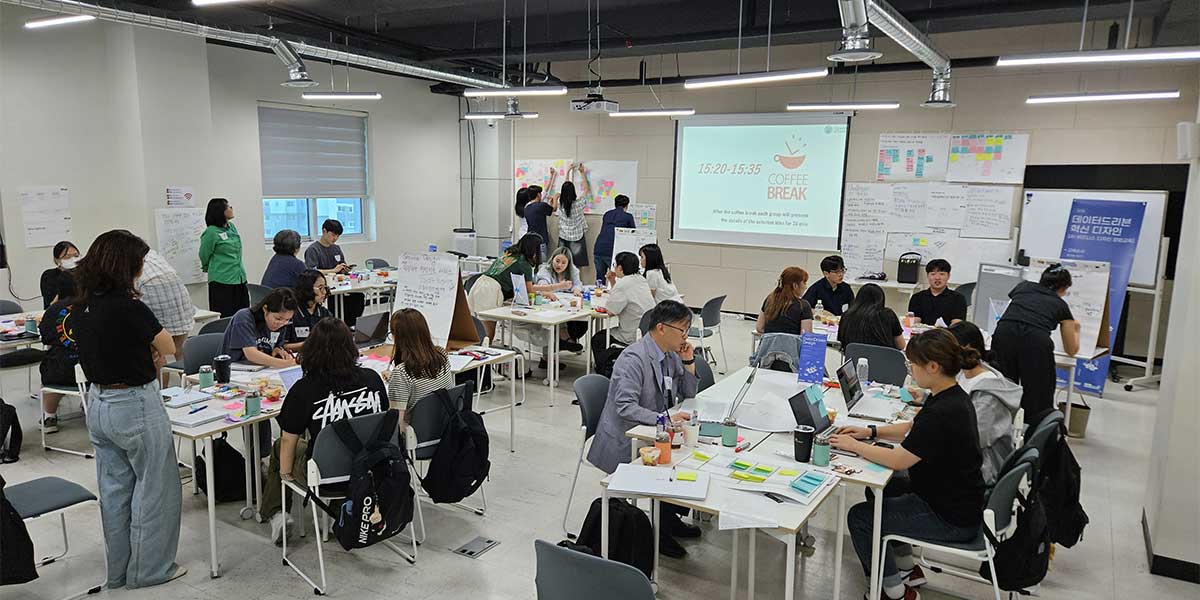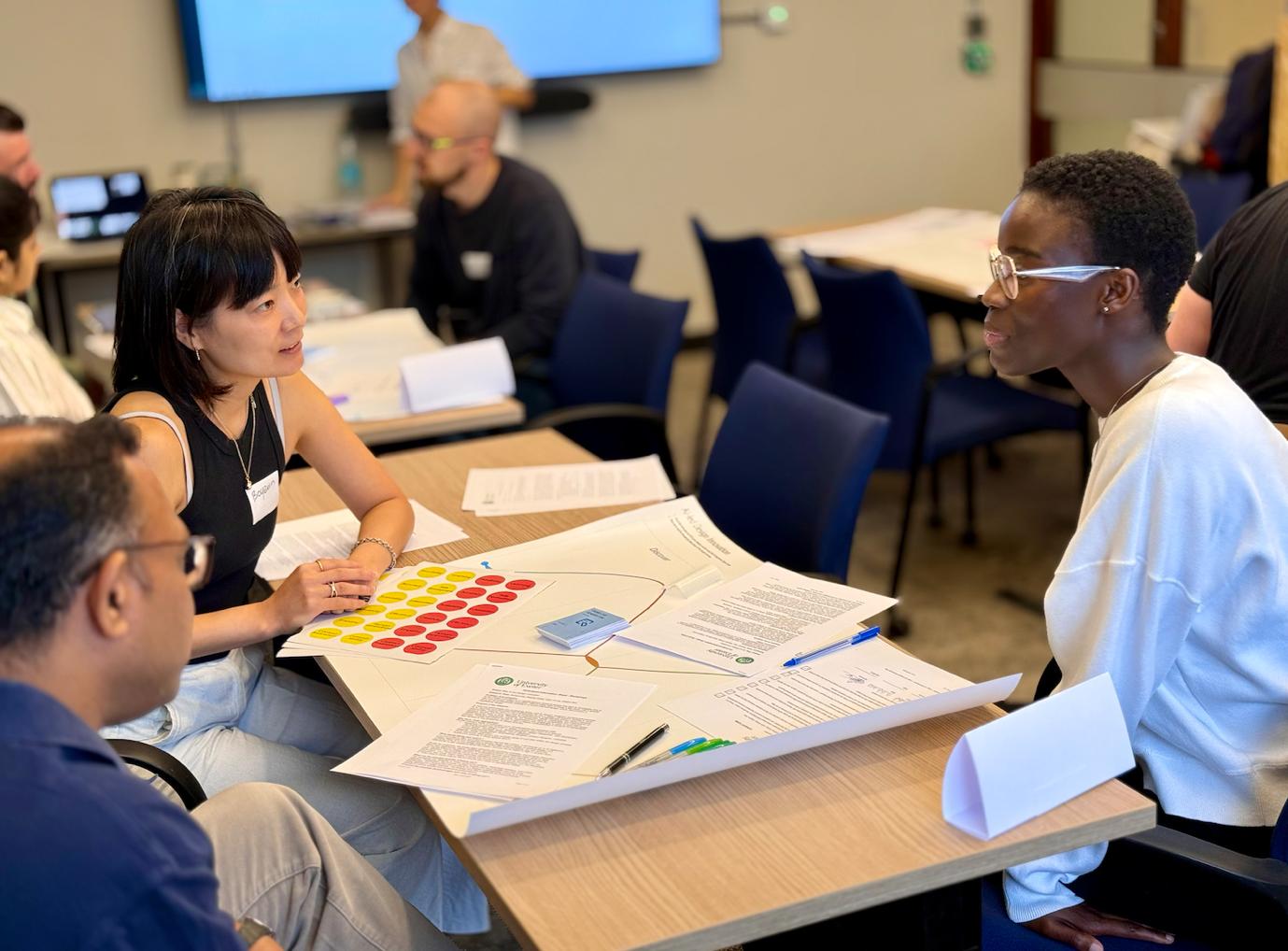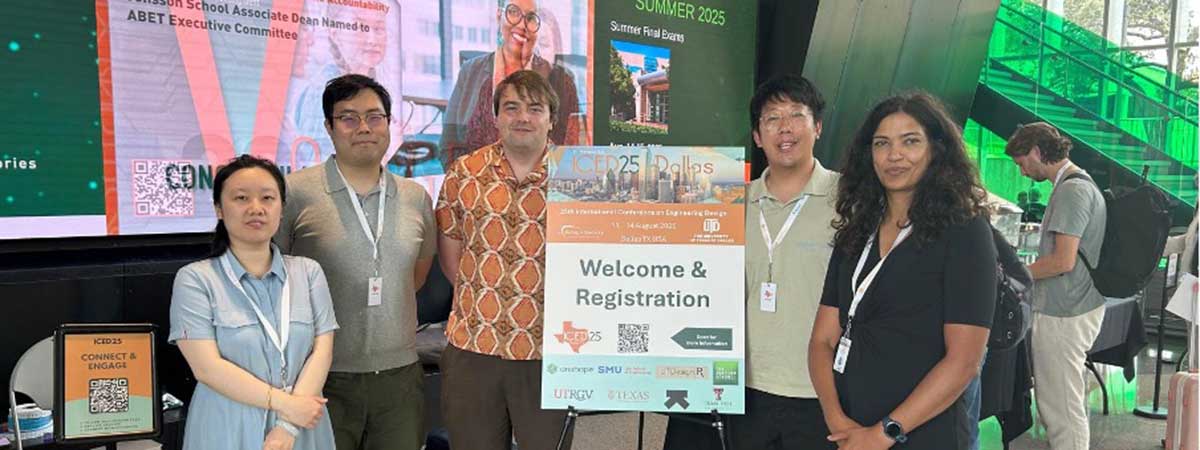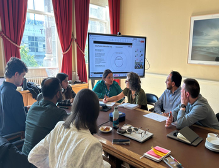Dr Boyeun Lee
On September 7th, 2024, I successfully delivered a Data-driven design innovation workshop hosted by GONGSAENG (a social enterprise that provides R&D consultancy service to create global impact in Southeast Asia) and Euclidsoft Korea (an AI security specialist that keeps their customers’ AI models safe and secure and creates core value through customized data analytics).
Despite the short notice, over thirty students participated in this inspiring journey of creative collaboration, eager to tackle the critical challenges outlined in the Sustainable Development Goals (SDGs). Using D³IKIT (Data-Driven Design Innovation KIT) (Lee and Ahmed-Kristensen, 2024), participants engaged deeply with the SDGs through a data-driven design process and approach, with a particular emphasis on exploring data-related challenges and opportunities.
This one-day workshop featured a series of design activities addressing three specific SDG challenges: Good Health and Well-being, Climate Action, and Decent Work and Economic Growth. Over thirty students and experts from fields including mechanical engineering, management, computer science, education, and design, engaged in meaningful discussion about how AI could address pressing issues. Some of the challenges explored included the needs of single elderly households, the rising threat of microplastic pollution in our ocean, and the infectious disease linked to climate change. The workshop generated a variety of innovative product, service and system ideas, including digital healthcare service for single elderly households, a platform for early-career professionals, and a healthcare system aimed at preventing diseases linked to climate change.
Although there are few data-driven design processes from literature, proposed processes are either conceptual or based on specific context, which makes it difficult for the practitioners to apply the approach in their practice (Lee and Ahmed-Kristensen, 2024). However, D³IKIT, the data-driven design process and toolkit used in this workshop, offered a platform for students and experts to further develop their innovate ideas while considering the economic, societal, environmental and ethical impacts that data and AI solutions may bring. The feedback from participants was overwhelmingly positive, including comments like:
“I learned how important it is to identify the right problem for humans and more than humans based on various data and to explore and refine potential solutions into applicable business and service ideas.”
“It was incredibly useful and insightful to experience the entire product and service design process in relation to data /AI solutions. I would definitely recommend this workshop to my peers.”
In collaboration with GONGSAENG and Euclidsoft Korea, I am planning a follow-up program to further explore the process of developing these solutions in greater detail.
Reference:
Lee, B., and Ahmed-Kristensen, S. (2024) D³IKIT: Data-Driven Design Innovation KIT. Proceedings of the Design Society, Volume 4: DESIGN 2024, May, 2109-2118. DOI: https://doi.org/10.1017/pds.2024.213





